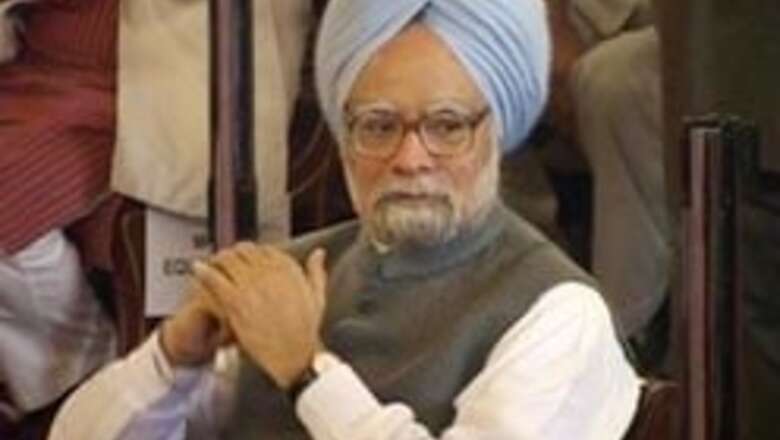
views
New Delhi: Prime Minister Manmohan Singh's political survival may depend on finding a strong response to the attacks in Mumbai as Indians clamour for answers and action to the country's '9/11'.
But if the track record of the quietly spoken 'Prime Minister by accident' is anything to go by, the Congress-led government may find it hard to both appease voters ahead of general elections, and persuade Pakistan to act against militants. "We have a figurehead prime minister," strategic affairs expert K Subrahmanyam said.
"There is an impression that the government is weak and not able to deal with terrorism." Many voters want some kind of clear response to the attack that killed 183 people, from identifying and punishing the masterminds to trade sanctions against Pakistan, or passing harsh anti-terrorism laws within India.
At stake is not only whether the Congress party, already unpopular due to high inflation, gets beaten in elections in early 2009 against an alliance led by the Hindu-nationalist Bharatiya Janata Party.
Also on the line is whether an India with perceived weak leadership will have the clout to pressure both the international community and Pakistan into clamping down on militants that New Delhi blames for the attacks.
"The government must find the right calibration of response," said Siddharth Varadarajan, diplomatic editor of the Hindu newspaper. "If it over-reacts it will please the domestic audience but alienate the international community. If it under-reacts it will alienate the voter." "With elections round the corner... my fear is they could resort to the past," Varadarajan said, referring to India's massing of troops along the border in 2002 after an attack by militants on its parliament.
The Economic Times, citing unnamed sources at a government meeting, reported on Monday that Singh had offered to resign following the attacks. But Sonia Gandhi, the head of the ruling Congress party, rejected it. Singh has often been called an accidental Prime Minister since he was named by Gandhi - the power behind the throne - after the last election in 2004.
The soft-spoken and grey-bearded economist only took the job after Gandhi, worried about attacks over her Italian birth, renounced her claim. In some ways, that decision has paid dividends. India has a respected leader, a darling of investors who seemed to rise above the corruption and intrigue for which Indian politics is known.
But his understated style could now prove a liability for Congress. Since the attacks, Singh has promised a new central investigative agency. He fired his home minister. But many say it is too little too late, coming after the government did little following a string of bombings in Indian cities this year.
The BJP is already demanding the government reinstate a tough anti-terrorism law that Congress had earlier repealed. "The restraint that the ruling Congress party has exhibited so far, however, could end up being the party's political death sentence," US private intelligence firm Stratfor said in a report.
Singh, according to some commentators, has already made one mistake - by calling on the head of Pakistan's military spy service to come to India to give evidence over the attacks. In a snub, Pakistan only said it will send a junior official.
"Singh was being more than naive" wrote Bharat Bhushan in the Mail Today. Singh has raised the political stakes by warning India's neighbours - read Pakistan - "there will be a cost" if suitable measures are not taken by them. Strategic expert C Raja Mohan says India's friends will wonder whether Singh has the resolve to stand up to Pakistan, adding its enemies have already bet on the government's weakness.
"If he fails to act on his promise to raise the costs to Pakistan, the credibility of his government will sink even lower," he wrote in the Indian Express. Singh can be underestimated. He was criticised a year ago for backing down on a civil nuclear deal with the United States due to leftist opposition. A year later he bounced back to pass the deal and win a vote of confidence in his government.
But that issue was divorced from the concerns of millions of Indians. The attacks have touched a much deeper nerve. Anger has risen that the attacks have shown an abyss between politicians - many guarded daily by elite commandos - and ordinary people who are defenceless victims. "It's all a blow to Congress before elections," said Varadarajan. "But there are still six months to go."




















Comments
0 comment